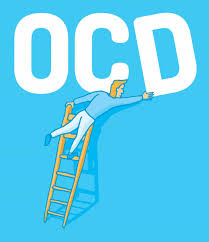OCD (Obsessive Compulsive Disorder) is a mental disorder characterized by obsessive thoughts and compulsive behaviors that can take over a person’s life. It affects millions of people around the world and can have a lasting impact on their day-to-day life. In this blog post, we will go into detail about OCD, from what it is to its symptoms to diagnosis and treatment options. We will explore the various ways in which OCD can be managed and discuss why it’s important to seek help if you or someone you know is struggling with OCD. Read on for more information about this mental disorder.
Contents
What is OCD?

Obsessive-compulsive disorder, or OCD, is a mental disorder that causes sufferers to have intrusive, unwanted thoughts (obsessions) and to feel the need to perform certain rituals or routines (compulsions) over and over again in an attempt to control or neutralize their anxiety. People with OCD often recognize that their obsessions and compulsions are irrational, but they feel powerless to stop them.
OCD can be extremely debilitating, making it difficult for sufferers to work, go to school, or even leave the house. In severe cases, OCD can lead to depression, social isolation, and even suicide. However, with treatment, most people with OCD can learn to control their symptoms and live productive lives.
Is OCD a Mental Disorder?
There is a lot of debate on whether or not OCD is a mental disorder. Some people believe that it is, while others believe that it isn’t. Here are some things to consider when making your decision:
1. The definition of a mental disorder is “a pattern of psychological or behavioral symptoms that impact multiple areas of life and create distress for the person experiencing them.” By this definition, OCD could be considered a mental disorder.
2. OCD can significantly interfere with a person’s ability to function in their daily life. It can make it difficult to work, go to school, or even take care of basic hygiene.
3. Many people with OCD suffer from depression, anxiety, or other mental health disorders as well. This co-occurrence further supports the idea that OCD is a mental disorder.
4. There is a strong genetic component to OCD. If you have family members with OCD, you are more likely to develop the disorder yourself. This suggests that there is an underlying biological cause for the condition.
5. Treatment for OCD typically includes therapy and medication. Both of these approaches are used to treat other mental disorders as well.
So what do you think? Is OCD a mental disorder? Ultimately, the decision is up to you. However, consider all of the evidence before making your final determination.
How Does OCD Impacts Your Mental Health?
OCD can have a number of different effects on your mental health. For example, people with OCD may:
spend a lot of time worrying about their obsessions or compulsions: This is one of the most common ways that OCD affects mental health. People with OCD may spend hours ruminating on their worries, to the point where it interferes with their daily life.
experience difficulty in concentrating and focusing: Due to the excessive worrying associated with OCD, it can be difficult for people with this disorder to focus and concentrate on tasks. This can lead to difficulties in school or work, as well as decreased productivity and quality of life.
avoid certain activities or situations due to anxiety: People with OCD may avoid certain activities or situations out of fear that they might trigger their obsessions or compulsions. This avoidance can lead to a decrease in socialization, which can further negatively affect your mental health.
develop depression and/or anxiety disorders: People with OCD may also develop other mental illnesses such as depression or anxiety disorders due to the distress caused by their symptoms. If left untreated, these disorders can worsen over time and have an even greater impact on your mental health.
Overall, OCD can have a significant impact on your mental health. If you are struggling with OCD, it is important to seek professional help in order to manage your symptoms and improve your quality of life.
How To Manage OCD And Mental Disorders?
If you suffer from OCD or another mental disorder, it is important to learn how to manage your condition. There are a number of different ways to do this, and the best approach for you will depend on the severity of your symptoms and your overall health.
Talk to your doctor about your options. If you have mild OCD, you may be able to manage your symptoms with over-the-counter medications or home remedies. If your symptoms are more severe, you may need prescription medication or therapy.
There are a number of different types of therapy that can be effective for OCD sufferers.
Psychotherapy is often the first line of treatment for OCD mental disorders. Cognitive behavioral therapy (CBT) is a type of psychotherapy that has been shown to be effective in treating OCD. CBT teaches people with OCD how to change the way they think about their obsessions and compulsions. Medication can also be used to treat OCD.
Exposure and response prevention (ERP) is another type of therapy that can be used to treat OCD. This approach involves gradually exposing patients to the things they fear and avoiding the urge to engage in compulsive behaviors.
Medication can also be an effective treatment for OCD. A variety of different medications are available, and the best option for you will depend on the severity of your symptoms and your overall health. A class of medications called serotonin reuptake inhibitors (SSRIs) are commonly used to treat OCD. SSRIs work by increasing levels of serotonin in the brain. Self-help measures such as relaxation techniques and exposure and response prevention (ERP) can also be helpful in managing OCD symptoms.
Some people also find that lifestyle changes can help reduce symptoms of OCD. These include exercising regularly, getting enough sleep, and reducing stress levels. In addition to traditional treatments, alternative treatment approaches such as mindfulness and yoga can also be useful in managing OCD symptoms. Working with a qualified mental health professional is important when seeking treatment for OCD.
Conclusion
OCD is an incredibly complex mental disorder, and it can be extremely difficult for someone with this condition to manage their symptoms. However, with the right treatment and support from family and friends, those affected by OCD can find ways to cope with their disorder and lead a fulfilled life. If you or someone you know has been diagnosed with OCD, don’t hesitate to reach out for help. There are many resources available that can provide valuable advice on how to deal with the symptoms of OCD in order to live a happy and healthy life.
For more information and guidance, please contact MantraCare. OCD is a mental health disorder characterized by obsessions and compulsions. If you have any queries regarding Online OCD Counseling experienced therapists at MantraCare can help: Book a trial OCD therapy session


